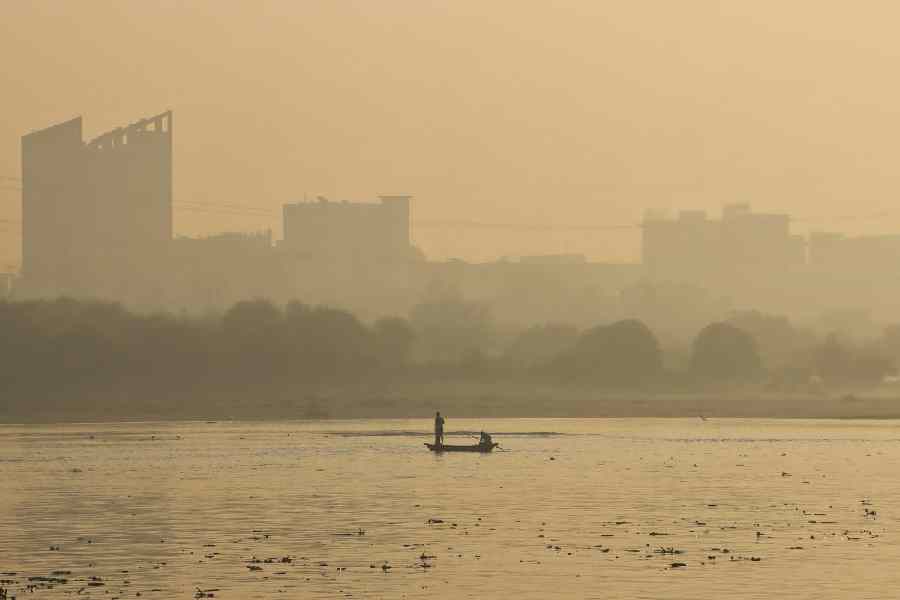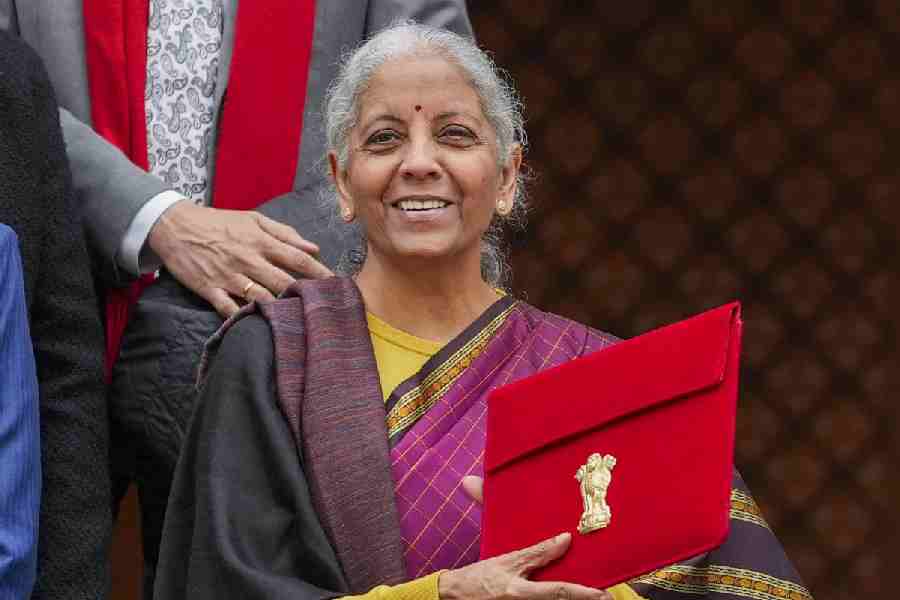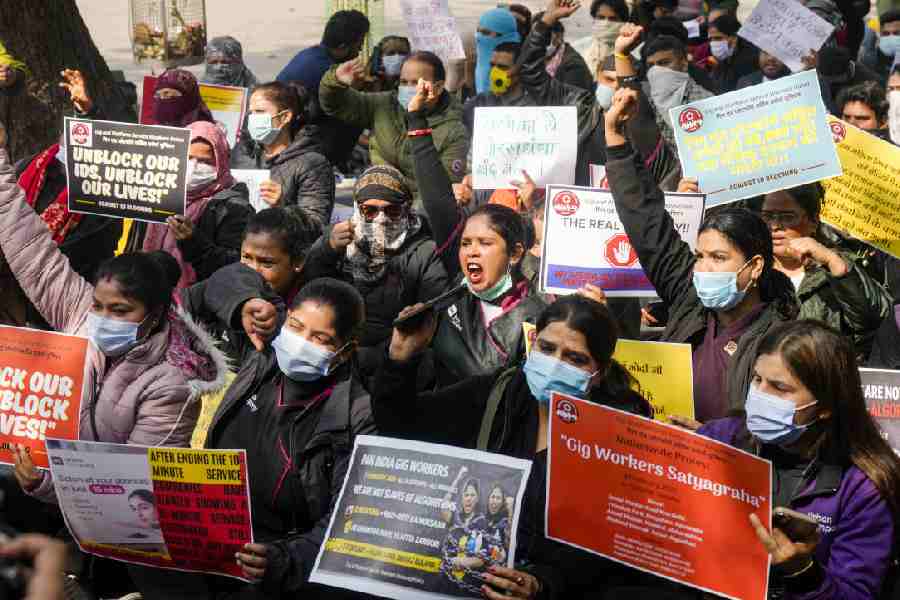Lost shades
Sir — There is a peculiar sadness in realising that autumn’s blue skies have vanished under a blanket of smog. Painters once caught light dancing on leaves and portrayed skies that seemed endless. Imagine J.M.W. Turner trying to paint Delhi today — his rising sun would look like a dim bulb behind a curtain. Claude Monet’s soft pastels would turn to muddy greys before his brush even dried. Even Vincent can Gogh’s stars would be invisible given the thick cover of pollution at night. The shift is not just meteorological; it is artistic theft. The world has lost its best lighting. Every shade of gold or blue is now filtered through fumes and dust. A season that once inspired awe now invites air purifiers. Nature’s masterpiece is slowly losing its brilliance.
Saikat Kumar Basu,
Ottawa, Canada
Flawed data
Sir — The Kerala government’s Extreme Poverty Eradication Project claims to have reached 64,006 “families” but its data show only 1,03,099 individuals, which would mean an average family size of less than two. That defies both mathematics and biology. The confusion in terminology between ‘families’ and ‘households’ has led to absurd classifications like single-member families. This is not a trivial error; it distorts the understanding of poverty itself. The state’s numbers may look impressive but the premise is flawed. The project appears to have confused data precision with policy achievement.
Fakhrul Alam,
Calcutta
Sir — It has been alleged that Kerala’s EPEP excluded those already covered by other welfare schemes, including the poorest who come under the Antyodaya Anna Yojana. What remained was a smaller, redefined category — the destitute. That group, too, is worth focusing on but calling its uplift endeavour ‘extreme poverty eradication’ misleads the public. A name should reflect intent. In this case, it hides it. A ‘Rehabilitation Project for Destitutes’ would have been honest and accurate.
Koustabh Sengupta,
Calcutta
Sir — Kerala’s effort to uplift over one lakh destitute people deserves recognition. The project brought food, shelter, and dignity to those long abandoned by society. This is what good governance looks like. The Left Democratic Front government’s compassion is not in question. But its figures seem dodgy. While a flawed statistic does not erase a moral achievement, a government cannot play fast and loose with numbers.
G. David Milton,
Maruthancode, Tamil Nadu
Sir — LDF leaders in Kerala are celebrating the end of extreme poverty but such declarations rarely survive close reading. There are still thousands who wander without support — at least 231 people, by the government’s own count. These lives, though few on paper, weigh heavily on the conscience. The promise of eradicating extreme poverty should be more than an election slogan. The project’s spirit is admirable. But welfare demands precision.
R.S. Narula,
Patiala, Punjab
New politics
Sir — The New York City mayoral primary has done what few expected — it has brought class back into American political vocabulary. Zohran Mamdani’s campaign may have relied on mango lassi cups to explain ranked-choice voting but the real innovation lay in his approach to voters. Speaking with Donald Trump’s supporters instead of donors reflected a willingness to meet people where they are. His victory would signal a shift from identity politics to class politics wherein affordability, wages and rent, not cultural wars, may once again define the American political argument.
Prasun Kumar Dutta,
West Midnapore
Sir — Zohran Mamdani’s campaign upended convention by listening to working-class voices rather than chasing elite approval. This strategy, simple as it seems, reconnected politics with everyday hardships. It revealed that affordability is the shared concern uniting the Left and the Right. That truth has been ignored for far too long by both sides. If he wins, it will be a victory not of ideology, but of the art of listening.
Annesha Ghosh,
Calcutta
Basic need
Sir — The Pew Research Center’s survey finding that Indians have the lowest awareness about Artificial Intelligence should be a wake-up call. Only 46% of Indians have even heard of AI; this far below the global median. Introducing AI in schools is therefore logical. Children need to understand what AI does, how it shapes their lives, and how to question its outcomes. A curriculum that jumps straight to programming or coding will miss the point. Without critical thinking, AI education will just produce bots.
Ajay Tyagi,
Navi Mumbai
Sir — India’s plan to introduce AI education from Class III sounds bold but it risks deepening an already painful digital divide. Many schools still lack electricity, let alone computers. Expecting students to learn AI without the tools to practise it is a hollow exercise. Teachers themselves struggle with basic training, and some teach multiple classes alone. Until the basics of access, connectivity, and teacher support are secured, a nationwide AI curriculum will remain an urban fantasy rather than an educational reform.
Kamal Laddha,
Bengaluru
Selfless hospitality
Sir — The Japanese principle of omotenashi — selfless hospitality — remains one of the most elegant cultural philosophies in modern society. It transforms service into an art of anticipation and sincerity, untouched by the lure of tips or praise. From offering a towel before one asks for it to apologising for a train’s thirty-second delay, every act reflects respect and mindfulness. Omotenashi reminds us that true refinement lies in attentiveness, not efficiency.
Sourav Ash,
Calcutta










